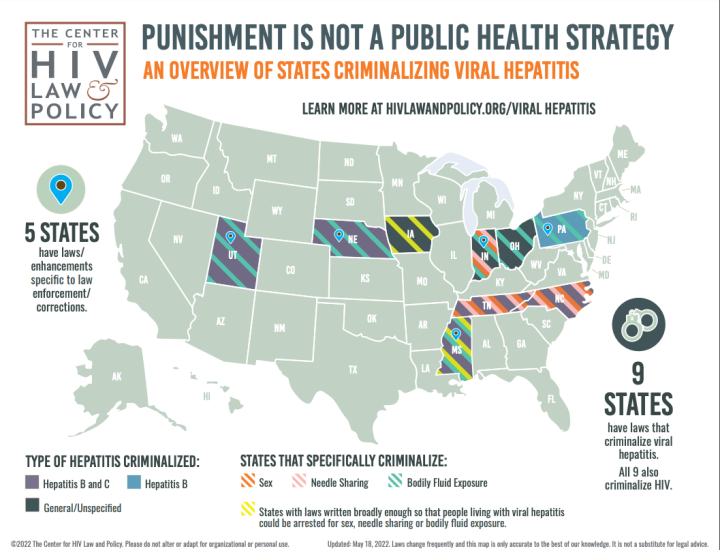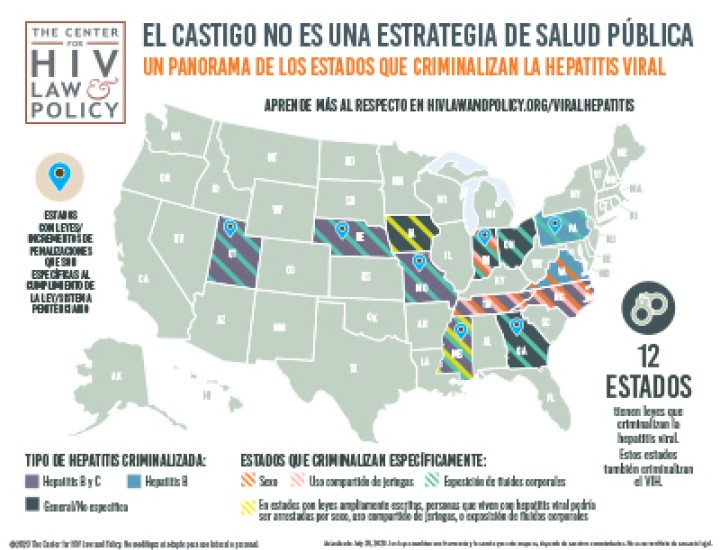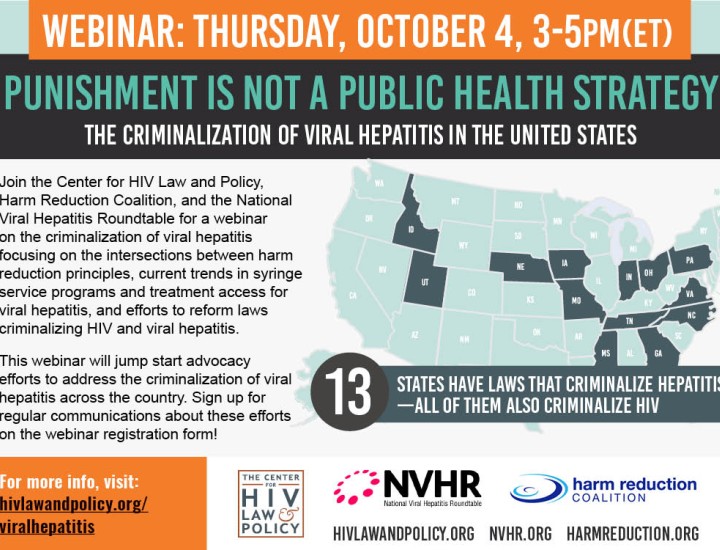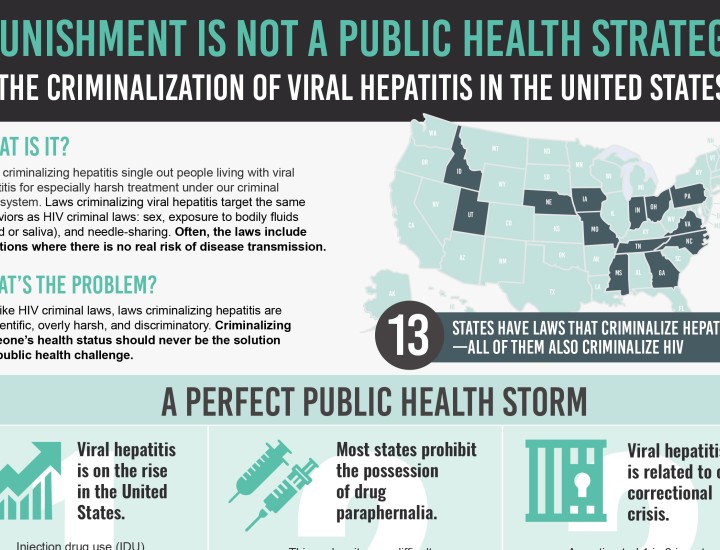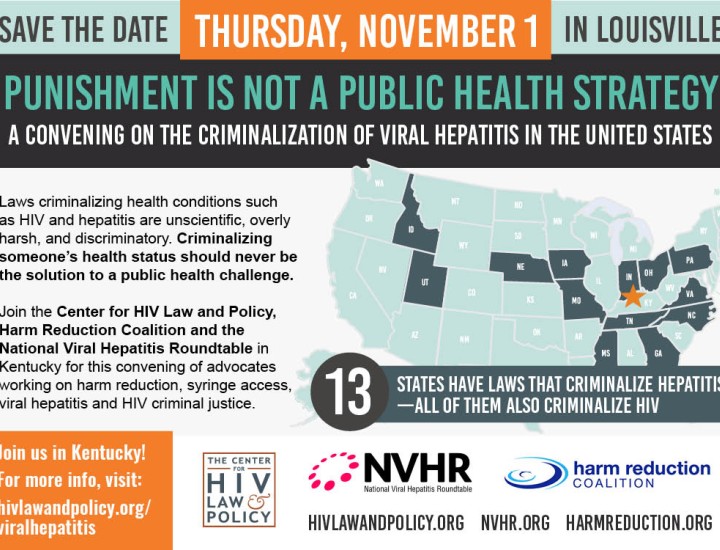Published August, 2018
Punishment is Not a Public Health Strategy: The Criminalization of Viral Hepatitis, The Center for HIV Law and Policy, Harm Reduction Coalition, National Viral Hepatitis Roundtable (2018)

Laws criminalizing health conditions such as HIV and hepatitis are unscientific, overly harsh, and discriminatory. Criminalizing someone’s health status should never be the solution to a public health challenge. Yet there are 13 states that have laws that criminalize hepatitis--all of them also criminalize HIV.
The Center for HIV Law and Policy, Harm Reduction Coalition, and the National Viral Hepatitis Roundtable collaborated on this fact sheet showing how the criminalization of viral hepatitis is a brewing public health storm. With rates of hepatitis infections on the rise due to the burgeoning opioid epidemic, barriers to safe syringe access, and restrictions on access to curative treatments, advocacy and education are necessary to defend against the criminalization of hepatitis in the United States.
See link below to download pdf version.
In October 2018, the Center for HIV Law and Policy, Harm Reduction Coalition, and the National Viral Hepatitis Roundtable presented a webinar on the criminalization of viral hepatitis focusing on the intersections between harm reduction principles, current trends in syringe service programs and treatment access for viral hepatitis, and efforts to reform laws criminalizing HIV and viral hepatitis.
NOTE: CHLP's work on viral hepatitis is made possible through generous funding from the Drug Policy Alliance and Gilead.
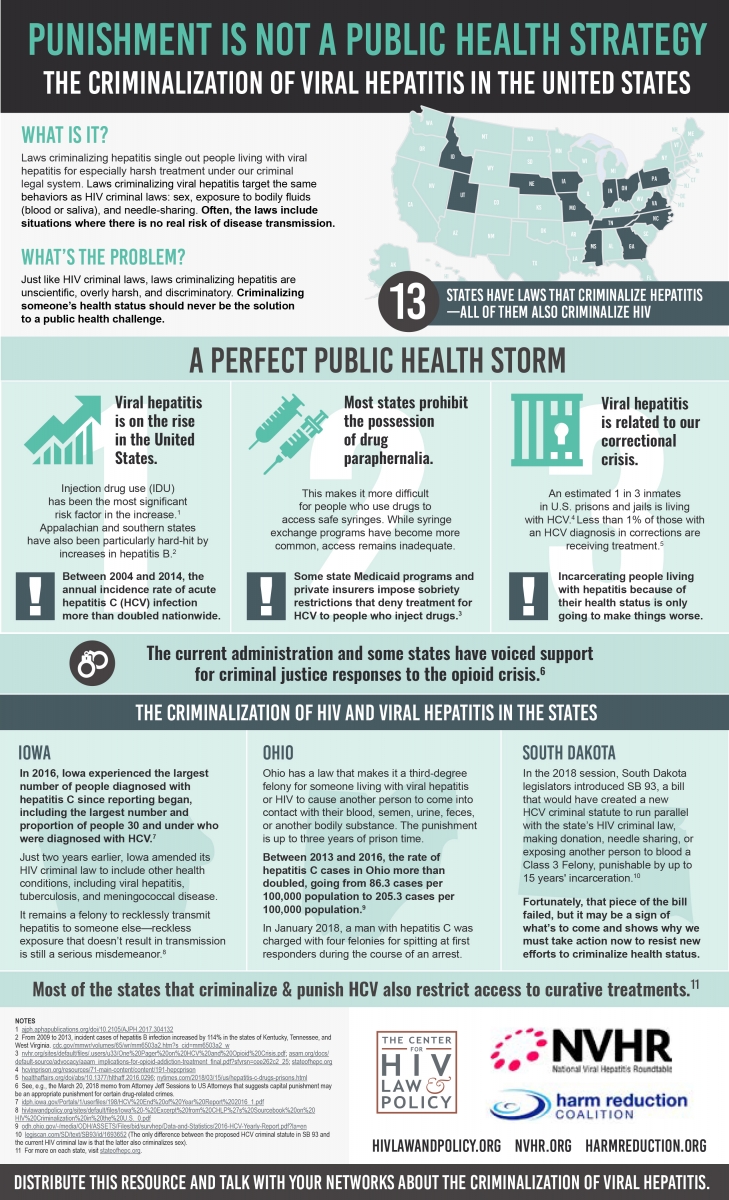
Copyright Information: CHLP encourages the broad use and sharing of resources. Please credit CHLP when using these materials or their content. and do not alter, adapt or present as your work without prior permission from CHLP.
Legal Disclaimer: CHLP makes an effort to ensure legal information is correct and current, but the law is regularly changing, and the accuracy of the information provided cannot be guaranteed. The legal information in a given resource may not be applicable to all situations and is not—and should not be relied upon—as a substitute for legal advice.
